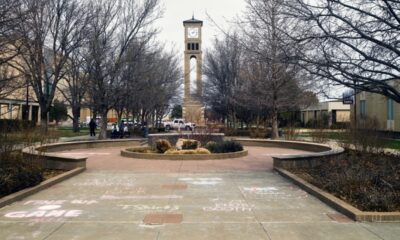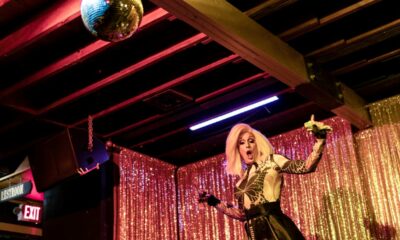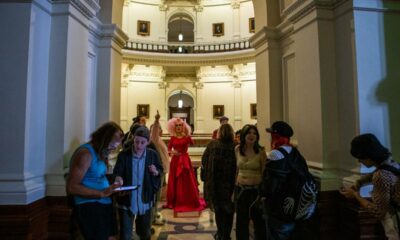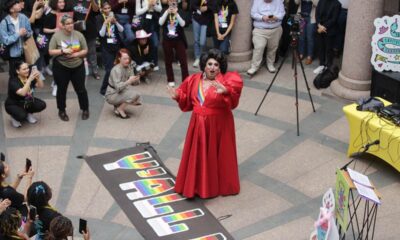88th Texas Legislature
Texas Senate committee advances bills restricting certain drag shows
Proposed legislation from Sen. Bryan Hughes, R-Mineola, would criminalize explicit performances where children are present and strip libraries of state funding for hosting any event featuring performers in drag. Critics say the bill is discriminatory and unconstitutional.
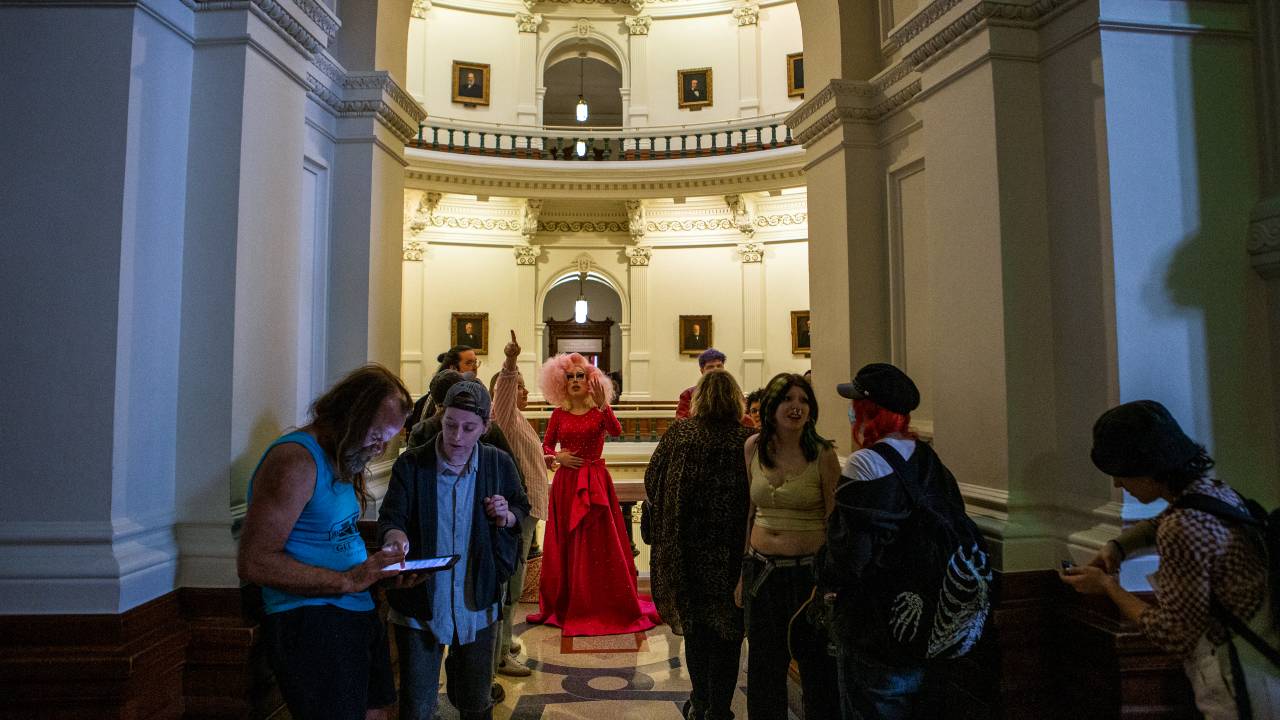
This article originally appeared in The Texas Tribune
 It’s been a long day for Robyn Valentine.
It’s been a long day for Robyn Valentine.
Standing in a packed Capitol hallway, the Corpus Christi-based drag performer could be spotted with her pink wig, stage makeup and baby blue clown outfit that comes with a ruffle collar and tulle sleeves. The look had taken about three hours to put together.
“I woke up at about 1 in the morning, just so I could get ready to be in drag,” she said.
For her, being in drag has always come naturally.
“I have always felt drawn to femininity,” she said. “Drag shows me an outlet in which I can embrace being a feminine gay male, but also doing so in an artistic way.”
It’s also business. Valentine has been a drag entertainer for over a decade, and in recent years she’s been performing live and hosting her own shows. And following the COVID-19 economic closures, she said one of her biggest focuses has been working with local businesses — something that has “created a sense of community.”
But now, she worries that Republican legislation designed to limit certain drag performances — on top of rising threats to and protests against these shows — could take away most of what she has built. So it was a no-brainer for her to drive four hours from the coast to Austin in the early morning to fight these bills, which she said target a minority group instead of protecting children, as the bill authors say.
“I came here because the attacks on the LGBTQIA+ community are not going to stop,” Valentine said. “I do fear for the future and what it could mean for my community and my own personal safety, which is why we need to draw a line in the sand now.”
Several other drag performers said they felt the same way as they gathered Thursday around the rotunda and eventually inside the Senate chamber — many of whom came decked out in higher heels, bigger wigs and brighter outfits — to make their voice heard on Senate Bill 12 and Senate Bill 1601. Four days later, the Senate State Affairs Committee voted to send both bills to the full chamber on a 6-2 vote along the partisan line. These proposals would have to pass both the Senate and the House before it could become law.
“I do get nervous. I do get scared. I’ve even had to cancel a show because I’ve had severe anxiety about it,” said Brigitte Bandit, an Austin-based drag performer who donned a bright pink floor-length gown and a big pink wig. “But ultimately, what am I going to do? Hide? I can’t hide. I have to be able to continue fighting for these things in being present and being visible.”
During the Thursday committee hearing, dozens of drag performers and their allies testified against these bills, outnumbering the the bills’ supporters. Opponents of the legislation also said the Republican-led efforts to criminalize certain drag performances were attacks on Texans’ First Amendment rights, while others said the legislation took away Texas parents’ rights to decide what content or culture their children are exposed to.
On the other side, the smaller contingent of the bills’ supporters say the legislation is needed to protect children from sexually explicit materials.
Filed by Republican state Sen. Bryan Hughes of Mineola, SB 12 would impose a $10,000 fine on business owners who host drag shows in front of children — if those performances are sexually oriented. The bill defines a sexually oriented performance as one in which someone is naked or in drag and “appeals to the prurient interest in sex.” The U.S. Supreme Court defines prurient interests as “erotic, lascivious, abnormal, unhealthy, degrading, shameful, or morbid interest in nudity, sex, or excretion.”
Compared to several other Republican proposals that seek to restrict drag shows — including Senate Bill 476 that Hughes previously filed — SB 12 scales down the proposed restriction on drag shows. But performers and their allies said the bill’s language is still vague.
“The bill being proposed is being left purposely vague to scare people out of interpretation,” Valentine said prior to the hearing. “I’ve seen many different people propose different interpretations already.”
During the Thursday hearing, Democratic Sen. José Menéndez of San Antonio voiced a similar concern about SB 12.
“I am concerned that what this is going to do is just put a target on the backs of certain people in certain businesses,” he said.
Hughes also filed SB 1601, which would withhold state funds from municipal libraries that host events in which drag performers read kids’ books to children.
These libraries don’t receive their operational funding directly from the state, according to a statement from the Texas Library Association. Instead, libraries can get money through competitive grant programs run by the Texas State Library and Archives Commission, the association said — around $2 million is distributed each year. SB 1601 could stop libraries hosting drag shows from being able to receive such grants the year after the events were held, the TLA said.
Baylor Johnson, the marketing and public information program manager for the Austin Public Library, is opposing SB 1601. In the past three years, the Austin Public Library has hosted at least two drag queen storytime programs at the request of members, which he said were age-appropriate and earned positive responses from families.
“Austin Public Library supports a parent’s right to make decisions about what kind of learning or entertainment experiences are appropriate for their child,” Johnson said. “Would a female librarian donning a Santa hat and beard to read ‘Twas the Night Before Christmas’ jeopardize the library’s state funding?”
The bills’ opponents also spoke about the importance of drag shows to the Texas economy, with these events drawing patrons to restaurants and bars to serve as an economic driver for small-business owners. They have also been a key way to raise funds for charities.
Janson Woodlee, who spoke on behalf of the Equality Alliance, an LGBTQ advocacy and philanthropic organization in Central Texas, testified that drag performances were a central component of the organization’s annual “Unite The Fight Gala.” Woodlee said last year’s gala raised over $200,000 for LGBTQ organizations in Texas.
On the other hand, less than a dozen supporters of the bills spoke at Thursday’s hearing. They said the legislation is needed to protect children from explicit materials and performances.
“Bringing children around sexual content is a targeted assault on their minds and bodies that should never be tolerated in a civilized society,” said Kelly Neidert, a conservative activist and founder of Protect Texas Kids, an organization that protests drag events.
Protect Texas Kids has been part of at least 14 drag event protests since it was founded just before Pride Month last June.
But the bills’ opponents said lawmakers are focusing on the wrong issue if they are trying to protect kids. Instead, they implored lawmakers to turn their attention toward gun violence or sexual abuse by church members.
Additionally, they say drag is simply an art form that shouldn’t be attacked.
“To restrict drag — an art form — in any way is a direct attack on my fundamental rights as an American and as a performer,” said Jay Thomas, an Austin resident who performs in drag as Bobby Pudrido.
William Melhado contributed to this story.
The Texas Tribune is a nonpartisan, nonprofit media organization that informs Texans — and engages with them – about public policy, politics, government and statewide issues.
88th Texas Legislature
Texas’ ban on certain drag shows is unconstitutional, federal judge says
Senate Bill 12 would have prohibited performers from dancing suggestively or wearing certain prosthetics in front of children. Critics sued the state, saying it violated the First Amendment.
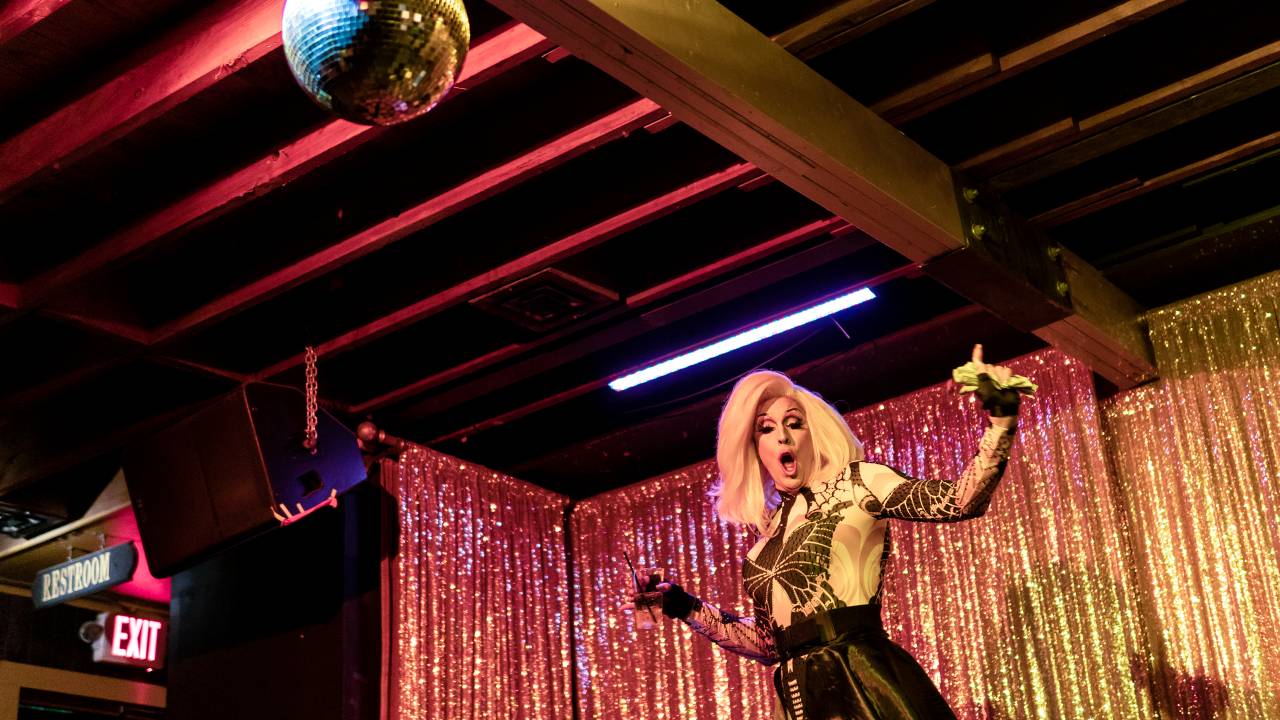
This article originally appeared in The Texas Tribune
 Texas cannot enforce a new law that restricts some public drag shows, a federal judge said Tuesday in declaring the legislation unconstitutional.
Texas cannot enforce a new law that restricts some public drag shows, a federal judge said Tuesday in declaring the legislation unconstitutional.
U.S. District Judge David Hittner found Senate Bill 12 “impermissibly infringes on the First Amendment and chills free speech.” The struck-down law prohibited any performers from dancing suggestively or wearing certain prosthetics in front of children.
Hittner ruled that language discriminated based on viewpoint and is unconstitutionally overbroad and vague.
“The Court sees no way to read the provisions of SB 12 without concluding that a large amount of constitutionally-protected conduct can and will be wrapped up in the enforcement of SB 12,” the ruling reads. “It is not unreasonable to read SB 12 and conclude that activities such as cheerleading, dancing, live theater, and other common public occurrences could possibly become a civil or criminal violation.”
The plaintiffs who sued the state celebrated the order, saying in statements shared by their lawyers that the decision affirmed their rights to express themselves.
“I am relieved and grateful for the court’s ruling,” drag performer Brigitte Bandit said. “My livelihood and community has seen enough hatred and harm from our elected officials. This decision is a much needed reminder that queer Texans belong and we deserve to be heard by our lawmakers.”
Republican state Sen. Bryan Hughes, who authored SB 12, defended the bill and pledged to challenge the ruling. The Texas Attorney General’s Office will appeal the ruling, a spokesperson said.
“Surely we can agree that children should be protected from sexually explicit performances. That’s what Senate Bill 12 is about,” Hughes said. “This is a common sense and completely constitutional law, and we look forward to defending it all the way to the Supreme Court if that’s what it takes.”
Critics of the bill, though, say that Republican lawmakers and officials this year have incorrectly — and unfairly — portrayed all drag performances as inherently sexual or obscene.
While SB 12 was originally billed as legislation that would prevent children from seeing drag shows, the final version did not directly reference people dressing as the opposite gender.
However, Republican leaders, including Gov. Greg Abbott, made it clear that drag shows were the bill’s target — comments and history that Hittner wrote “the court cannot ignore.”
Last month, Hittner temporarily blocked SB 12 from taking effect on Sept. 1 after a two-day hearing for a lawsuit filed against the state by a drag queen and LGBTQ+ groups.
LGBTQ+ Texans, advocates, artists and business groups who sued the state, argued that the law discriminates against the content of performances and restricts equally protected free expression that is protected under the First and 14th Amendments.
In Tuesday’s 56-page ruling, Hittner noted a survey of court decisions “reveals little divergence from the opinion that drag performances are expressive content that is afforded First Amendment protection.”
“Drag shows express a litany of emotions and purposes, from humor and pure entertainment to social commentary on gender roles,” the ruling reads. “There is no doubt that at the bare minimum these performances are meant to be a form of art that is meant to entertain, alone this would warrant some level of First Amendment protection.”
Other states have passed similar legislation restricting drag performance, which have also been struck down by federal courts.
In June, a federal judge in Tennessee, appointed by former President Donald Trump, ruled a law there was unconstitutional in its effort to suppress First Amendment-protected speech.
Bucking that trend, another Texas federal judge last week issued an opinion that supported drag show restrictions.
U.S. District Judge Matthew Kacsmaryk said that West Texas A&M University President Walter Wendler acted within his authority when he canceled a campus drag show. Kacsmaryk wrote that Free Speech jurisprudence had “not clearly established that all ‘drag shows’ are categorically ‘expressive conduct.’”
Hittner acknowledged his Panhandle counterpart’s ruling Tuesday. Hittner pointed to a letter in which Wendler explained his reasoning for banning the show, comparing drag to blackface and a slapstick sideshow.
“The president’s sentiment reinforces this Court’s opinion that while some people may find a performance offensive or morally objectionable, it does not mean the performance is not expressive or given First Amendment protection,” he wrote. “Not all people will like or condone certain performances. This is no different than a person’s opinion on certain comedy or genres of music, but that alone does not strip First Amendment protection.”
LGBTQ+ advocates welcomed Hittner’s decision Tuesday.
“Today’s ruling is a celebration for the LGBTQ community and those who support free expression in the Lone Star State,” GLAAD President and Chief Executive Officer Sarah Kate Ellis. “Texas now joins an increasing number of states whose discriminatory and baseless bans on drag performances are being recognized as unconstitutional and an attack against everyone’s freedoms.”
William Melhado contributed to this story.
The Texas Tribune is a nonpartisan, nonprofit media organization that informs Texans — and engages with them – about public policy, politics, government and statewide issues.
88th Texas Legislature
Federal judge bars Texas from enforcing book rating law
House Bill 900 requires book vendors to rate all their materials based on their depictions or references to sex before selling them to schools. Vendors say the law aims to regulate protected speech with “vague and over broad” terms.
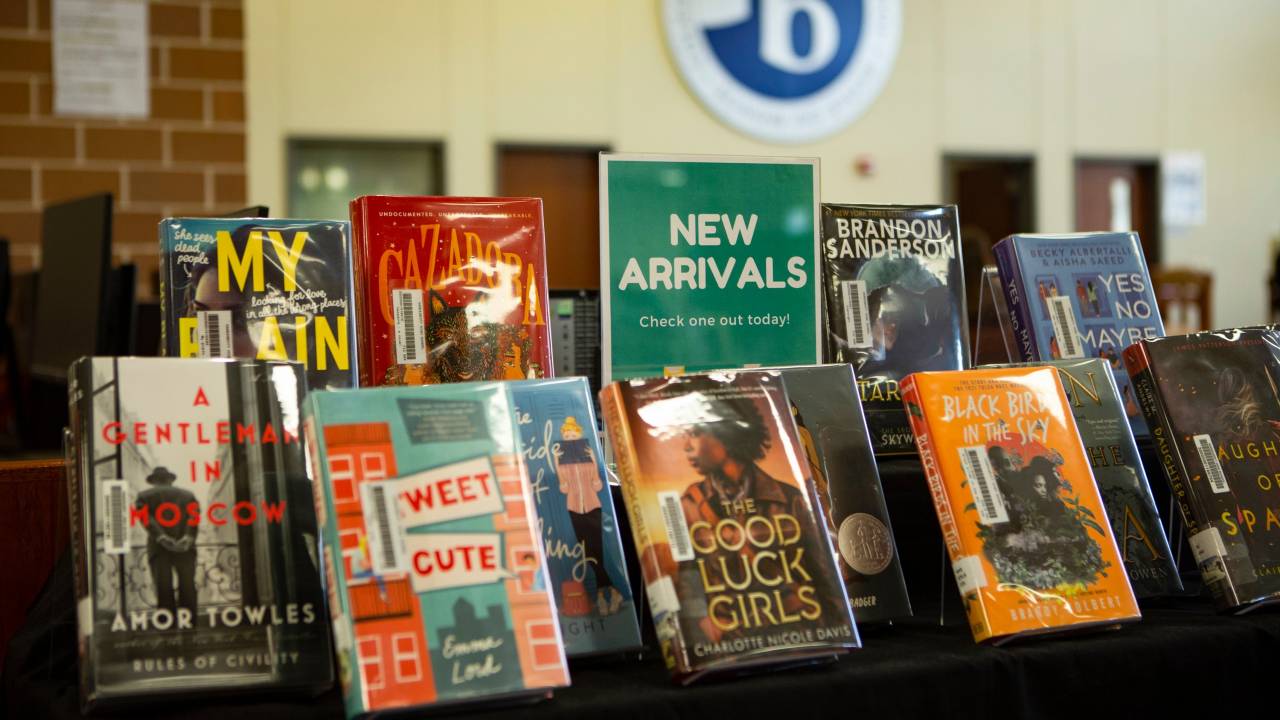
This article originally appeared in The Texas Tribune
 A federal judge said Thursday he will stop a new Texas law aimed at keeping sexually explicit materials off of school library shelves on the eve of the law going into effect, according to state attorneys and lawyers for a group who sued over the proposal.
A federal judge said Thursday he will stop a new Texas law aimed at keeping sexually explicit materials off of school library shelves on the eve of the law going into effect, according to state attorneys and lawyers for a group who sued over the proposal.
District Judge Alan D. Albright indicated during a hearing that he will grant a temporary injunction sought by a group of book groups and sellers, including two Texas bookstores, who sued the state over House Bill 900 in July, the group’s lawyers said in a statement. Albright will issue a written order in one to two weeks; in the meantime, the state cannot enforce the law, according to the statement.
HB 900, which was approved during this year’s regular legislative session, requires school library vendors to rate all their books and materials for appropriateness before selling them to schools based on the presence of sex depictions or references. It also requires vendors to rank materials previously sold to schools and issue a recall for those that are deemed sexually explicit and are in active use by a school.
The plaintiffs argue that the law violates their constitutional rights by targeting protected speech with its broad and vague language. The lawsuit further alleges HB 900 would force plaintiffs to comply with the government’s views, even if they do not agree with them, and that the law operates as prior restraint, which is government action that prohibits speech or other expression before the speech happens. The vendors say it is impossible for them to comply with the rating system because of the sheer volume of materials they would need to review.
The law also calls for creating state school library standards that prohibit sexually explicit materials, requiring parental consent for students to check out materials classified by vendors as “sexually relevant” and giving the Texas Education Agency authority to review a vendor’s rating. If the TEA disagrees with the vendor’s rating and gives it a different one, the vendor must use the agency’s rating. Vendors who do not will be added to a list of vendors that schools cannot buy library materials from.
During the bill’s legislative hearings, librarians and legal experts shared concerns and worries that its language would ensnare books that are not inappropriate and, to the contrary, may be titles important for students whose lived experiences may not be reflected in other literature.
The proposal, from Rep. Jared Patterson, R-Frisco, arrived amid an ongoing debate about what materials are appropriate to be stocked in school and public libraries. Patterson and supporters of such regulations say libraries are infested with inappropriate books that must be vetted and removed.
However, skeptics of that panic and literary advocates counter that the books singled out by politicians often explore sexuality and race, topics that have been swept up in culture-war politics but remain important for youth who may not be comfortable talking about such matters with others.
Despite the concerns, HB 900 sailed through the legislative process before Gov. Greg Abbott signed it in June. It was set to go into effect Friday; however, the law’s language suggests the new requirements won’t have to be fulfilled immediately.
Most, if not all, of the state’s roughly 5.4 million public schoolchildren have already begun the 2023-2024 school year.
The lawsuit’s plaintiffs include two bookstores, Austin’s BookPeople and West Houston’s Blue Willow Bookshop, as well as the American Booksellers Association, the Association of American Publishers, the Authors Guild and the Comic Book Legal Defense Fund.
The Texas Attorney General’s office said Thursday it would move to reverse the injunction and appeal the judge’s decision. The office had not received the judge’s written order or decision by Thursday afternoon, a spokesperson said.
A court representative for Albright did not respond to an inquiry about his comments during Thursday’s hearing, reported by the plaintiffs’ lawyers and on social media by at least one plaintiff.
“We are grateful for the court’s swift action in deciding to enjoin this law, in the process preserving the long-established rights of local communities to set their own standards; protecting the constitutionally protected speech of authors, booksellers, publishers and readers; preventing the state government from unlawfully compelling speech on the part of private citizens; and shielding Texas businesses from the imposition of impossibly onerous conditions,” the plaintiffs said in a joint statement after the hearing. “We look forward to reading the court’s full opinion once it is issued.”
The Texas Tribune is a nonpartisan, nonprofit media organization that informs Texans — and engages with them – about public policy, politics, government and statewide issues.
88th Texas Legislature
Federal judge issues temporary restraining order, says Texas law banning drag shows is “likely” unconstitutional
U.S. District Judge David Hittner heard from LGBTQ+ groups, businesses and a drag performer in a hearing this week, who argued Senate Bill 12 violated their First Amendment rights.
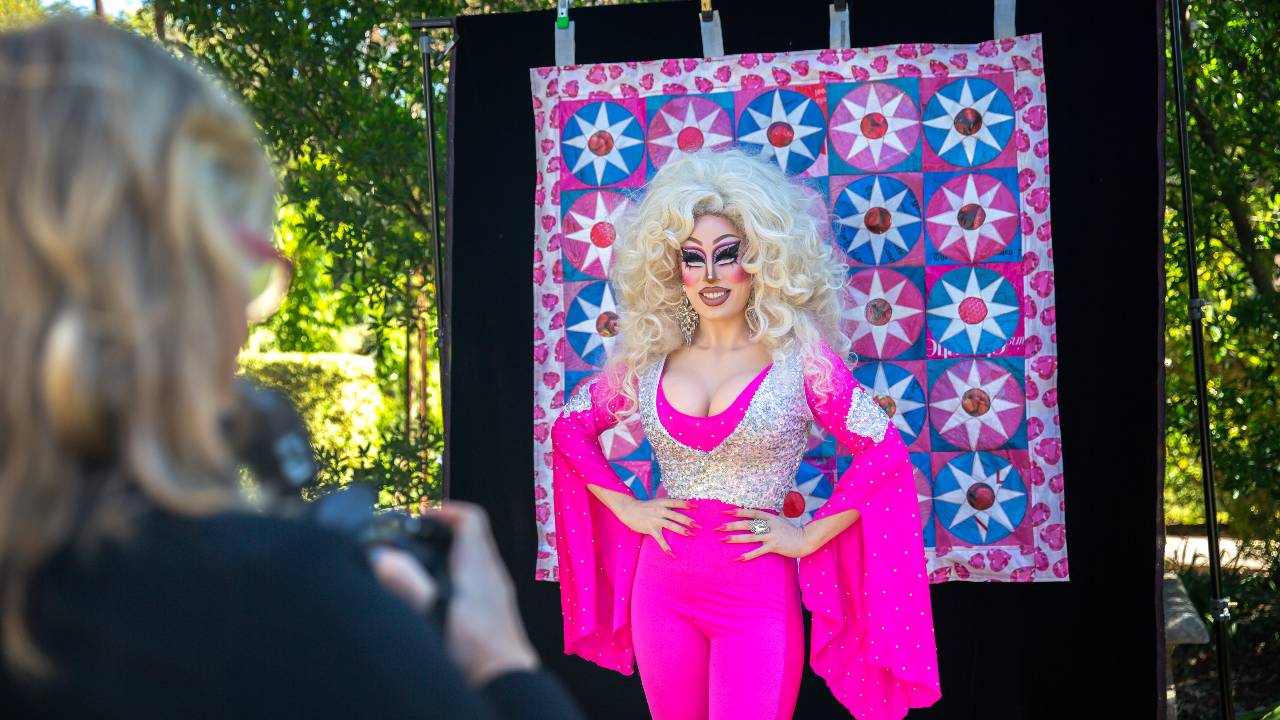
This article originally appeared in The Texas Tribune
 U.S. District Judge David Hittner temporarily blocked a new state law Thursday from going into effect that would have criminalized sexually-oriented performances in front of children or effectively banned some public drag shows.
U.S. District Judge David Hittner temporarily blocked a new state law Thursday from going into effect that would have criminalized sexually-oriented performances in front of children or effectively banned some public drag shows.
LGBTQ+ groups sued the Texas attorney general’s office, hoping to stop authorities from enforcing Senate Bill 12, which was signed by Gov. Greg Abbott in June and was scheduled like most new laws to go into effect Friday.
In a two-day hearing earlier this week in Houston, a drag performer and entertainment businesses said Texas lawmakers’ effort to regulate these shows was an unconstitutional attempt to stifle their freedom of expression. Though Hittner did not issue a final order on Thursday, he found the plaintiffs’ argument compelling.
“Based on evidence and testimony presented at the hearing, the court finds there is substantial likelihood that SB 12 as drafted violated the First Amendment of the United States Constitution under one or more of the legal theories put forward by the plaintiffs,” Hittner wrote in the temporary restraining order.
Hittner said allowing the law to take effect would likely cause “irreparable harm” to the plaintiffs. He issued the restraining order to maintain the status quo of the legal landscape while preparing a final decision — the restraining order does not guarantee a permanent injunction. He said his order could come two to four weeks after the hearing.
Hittner heard testimony earlier this week from LGBTQ+ groups, businesses and a performer, which were plaintiffs in one of two lawsuits against SB 12. They argued the law trampled on their First Amendment rights to perform and organize drag shows. They described drag as a healing, expressive and political form of performance art with historical connections to LGBTQ+ people.
“If allowed to take effect, SB 12 will make our state less free, less fair, and less welcoming for every artist and performer,” said American Civil Liberties Union of Texas Attorney Brian Klosterboer in a statement following the judge’s decision. “This temporary order is a much-needed reprieve for all Texans, especially our LGBTQIA+ and transgender community, who have been relentlessly targeted by our state legislature.”
Defending the law, attorneys with the Texas attorney general’s office said SB 12 was narrowly tailored to protect children from sexually-explicit performances. The new law did not explicitly ban drag shows, lawyers for the state said, and these performances should not be considered expressive or receive First Amendment protections.
However, shortly after signing the law, Abbott shared a story on social media about SB 12’s passage and declared he had banned drag performances in public.
“The people of Texas were appalled to learn of an increasing trend of obscene, sexually explicit so-called ‘drag’ performances being marketed to families with children,” said Paige Willey, the director of communications for the attorney general’s office. “The Office of the Attorney General will pursue all legal remedies possible to aggressively defend SB 12, the state law that regulates such performances to protect children and uphold public decency.”
Under the new law, business owners would have had to face a $10,000 fine for hosting sexually explicit performances in which someone is nude or appeals to the “prurient interest in sex.” Performers caught violating the proposed restriction could be slapped with a Class A misdemeanor, which carries a maximum penalty of a year in jail and a $4,000 fine.
Texas is one of six states that have passed a bill restricting “adult” or drag performances, according to the Movement Advancement Project, a nonprofit that tracks legislation related to LGBTQ+ issues.
Legal challenges to similar legislation in Florida, Montana and Tennessee have successfully blocked these laws from going into effect. In June, a federal judge in Tennessee, appointed by former President Donald Trump, ruled the law is unconstitutional in its effort to suppress First Amendment-protected speech.
The Texas Tribune is a nonpartisan, nonprofit media organization that informs Texans — and engages with them – about public policy, politics, government and statewide issues.


